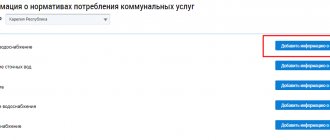Sergey Isakov, head of the new buildings department at Yurinfo Real Estate, answers:
Such companies offer to conclude a property management agreement - in this case, renting an apartment. One of the advantages is that the client does not need to independently rent out their apartments, both daily and long-term. Of course, if the client has one apartment, then theoretically it can be rented out and negotiated independently each time. What if there are several such apartments? Finding a tenant for each apartment is a rather labor-intensive process.
With trust management, naturally, some percentage of the profit will have to be paid to the company. But there are also certain advantages: when a tenant changes, a cleaning service is ordered, which prepares the apartment for rent to the next individuals. There are no risks as such, because a notarized power of attorney for property management is issued. No one from the trust management company can dispose of the apartment as they wish, since the agreement stipulates in advance that this property is intended only for rental.
Answers to the 5 most frequently asked questions about renting a home
3 ways to legally rent out an apartment
Trust management is a service, certain services in the real estate market, which are regulated by law, and, in my opinion, this is beneficial for those who have not one, but several apartments. Or if, for example, a person is abroad: it is convenient for him that the company’s specialists are monitoring his apartment. They inform you about the wear and tear of the furniture, what is needed for repairs - all this is recorded with photo reports. The client himself only makes a profit.
Sample DDU
"_____" ________________ 2021
Gr. __________________________________________________________ (personal data of the principal), passport: _______________________________ (passport data), living at the address:________________________________ (address of the principal), hereinafter referred to in the text of the agreement as “ Principal ”, and c.__________________________________________________________________________ (personal data of the trustee), _____________________________ (data of his passport ), residing at the address: _____________________________________ (address of the manager), hereinafter referred to in the agreement as the “ Trustee ”, and together referred to as the “Parties” to the agreement, have agreed as follows:
1. Item
1.1. The Principal, acting as the owner of the housing, transfers to the Trustee an apartment owned by the Principal, located at the address: __________________________________________________________________________ (address of the transferred housing), with a total area of _________ sq. m. m, into trust management within _______ days after the Parties sign this agreement, and the Trustee, according to the acceptance certificate, accepts the housing.
1.2. The apartment that is the subject of the agreement has the following characteristics: number of rooms _____, total usable area _______; living area _______ sq.m.
1.3. The principal guarantees that at the conclusion of this agreement the apartment is not mortgaged to third parties, is not under arrest, and is not burdened with any other obligations.
1.4. The manager has the right to use the apartment during the validity period of the agreement in accordance with its intended purpose (for living).
1.5. The owner’s rights to the subject of the agreement are confirmed by the following documents: _______________________________________________________________________________________________.
1.6. The Trustee shall own and dispose of the housing transferred to him solely in the interests of the Trustee.
1.7. The transfer of housing into trust management by the Principal does not entail the transfer of ownership rights to the transferred apartment to the Trustee.
2. Terms of agreement
2.1. The validity period of the agreement is determined from _____________________ to _______________________.
2.2. The rights and obligations of the Trustee regarding the management of the transferred housing arise from the moment the relevant premises are transferred to the Trustee. The transfer of housing is formalized by a transfer deed signed by the Parties.
2.3. If the parties to the agreement do not terminate the document upon expiration, the agreement is extended under similar conditions.
3. Conditions for early termination of the agreement
3.1. The agreement may be terminated early, before the period specified in clause 2.1., if:
- declaring the Trustee bankrupt;
- liquidation of the Trustee;
- commission of actions (inaction) by the Trustee that are clearly directed to the detriment of the interests and rights of the Trustee;
- refusal of the Trustee to further manage the apartment due to the inability to personally fulfill the duties of trust management of the transferred housing;
- existence of an agreement between the Parties;
- the occurrence of other circumstances provided for by law, this agreement or additional annexes or agreements to it.
3.2. The Principal may refuse to implement the agreement at any time, subject to payment to the Trustee of his remuneration for the last reporting period (month) of the agreement.
3.3. If either party refuses to fulfill the agreement, the other party must be notified of this no less than ________ days before termination of the agreement.
4. Rights and obligations of the parties
4.1. When executing the agreement, the trustee is obliged to:
- transfer to the Trustee all benefits and income received from the trust management of housing, with the exception of financial resources allocated to cover expenses related to the trust management of the apartment and the remuneration due to the Trust Manager, as well as other payments and costs provided for in this agreement;
- carry out settlements with the Principal in the manner and within the time limits established by the agreement;
- timely make all required utility payments (for gas, electricity, water, Internet, telephone and others) in the prescribed manner;
- control the proper use of the transferred housing, taking into account its purpose and technical features;
- require the tenant to comply with the rules for the use of housing, including safety rules, and constantly take the required measures to ensure the safety of the transferred housing and the equipment installed in it;
- demand from the tenant proportionate compensation for damage caused to housing and property installed in it due to the fault of the tenant or third parties;
- fulfill other duties of a housing tenant as determined by current legislation;
- provide reports on activities at the request of the Principal.
4.2. The trustee is responsible for resolving any risks related to damage, loss, theft and premature wear and tear of the property in the apartment that occurred during the term of the agreement. In the event of loss or damage to property assets, the Trustee is obliged to carry out the necessary repairs or replace the damaged (lost) property with property similar or satisfactory to the Trustee at the expense of the tenant.
4.3. The Trustee undertakes to promptly inform the Principal regarding all circumstances relating to the transferred property.
4.4. The trustee has the monthly right to remuneration specified in clause 6 of the agreement.
4.5. The principal has the right:
- verify compliance with the agreement by the Trustee;
- demand compensation for damage caused to the transferred housing or property located in it during the period of validity of the agreement;
- if you lose confidence in the manager, terminate the agreement early;
- receive income from the transferred housing minus the amounts of remuneration to the Manager and compensation for expenses required under trust management.
4.6. The principal is obliged to transfer to the manager all documentation and information required to fulfill the obligations under the agreement.
5. Calculations of the parties
5.1. The Trustee pays the Trustee _________ rubles monthly.
5.2. The trustee has the right to receive remuneration ______% of the income received under trust management. Payment for utilities _____________________________________________ (list of services) is made by the Trustee at the expense of the tenant.
5.3. The Trustee has the right to fully reimburse the expenses incurred by him, agreed upon with the Trustee, relating to the management of the apartment, from the income received from the use of this apartment.
5.4. Payments are made in cash.
6. Dispute resolution
6.1. Any disputes not resolved by the Parties to the agreement shall be resolved in court.
7. Addresses, details of the parties
Principal _____________________________________________________________________________________
Trustee______________________________________________________________________________
8. Signatures of the parties
You can edit the trust in .docx format for future use.
Apartment inheritance tax
Features of a land donation agreement between relatives
Benefits for housing and communal services for pensioners in 2021
Ways to re-register a mortgage to another person
How to register ownership of a garage
Criteria for choosing a developer for purchasing an apartment in a new building
Private practicing lawyer Victoria Suvorova (Pyatigorsk) answers:
Trust management of real estate (apartment) is regulated by law. It looks like this: You enter into an agreement with a real estate agency or realtor, and in the agreement you specify all the necessary conditions for managing your property. Pros: it saves your time, you don’t need to meet with the tenants yourself, spend time traveling and showing apartments, submitting advertisements, selecting tenants, etc. Although, given that you have already submitted an advertisement, you have already done most of the work on surrender. Of the minuses:
- this service is paid, and the real estate agency must pay a percentage of either transactions or a monthly fee;
- the realtor is interested in renting out your apartment to anyone, that is, you do not control who lives there;
- paying for the apartment on time, the condition of the apartment is controlled by the real estate agency, not you. For some, this is a plus, but in practice, unscrupulous agencies can deceive you as an owner.
In any case, I recommend that you definitely study the text of the trust management agreement. It should not be “standard”, downloaded from the Internet, but made to suit you and your wishes. Trust management is beneficial for you if you do not live in the city where the apartment is located and do not have the opportunity to visit there often.
How much can you earn from renting real estate?
How to rent out an apartment profitably?
Transfer to operational management
State, municipal property, which is the property of an organization or a private person, can be transferred to operational management. In this case, the main characteristics of such property should be as follows:
- specific location and isolation
- inability to move
- high cost (when the loss of such property could cause irreparable damage to the owner)
An entire enterprise can be considered as an example of property transferred to operational management. In this case, this is real estate with the entire set of property: movable, immovable, cash, valuables, etc. Here, the operational management agreement provides for the operational management of the enterprise as a single whole.
When drawing up this document, the parties to the agreement must be guided by the norms of the Civil Code, Tax Code, Budget Code of the Russian Federation, federal legislation, as well as the provisions prescribed in acts of local (municipal) self-government bodies. In general, both the direction of activity of the organization that received the property with operational management rights and the functions it performs are clearly defined and strictly limited by the owner of the property.
We invite you to familiarize yourself with: Material and procedural norms of administrative law examples
Kirill Kokorin, legal adviser of the Inkom-Real Estate legal service, answers:
Trust management of real estate is the transfer by the owner (founder) of his property under a trust management agreement to a manager who will manage the property in the interests of the owner for a fee.
In your case, management will most likely be based on the delivery of your apartment under rental or rental agreements, both for long periods and daily. Simply put, between you and the employers there will be an intermediary who, for a fee, will do all the work for you, and you will receive income.
The advantage is that the owner’s participation is not required to interact with tenants or tenants. The manager, on his own behalf, will deal with all issues: advertise the property, search for tenants and conduct showings, conclude contracts, receive funds, move in and evict tenants, ensure the safety of property.
The owner, in turn, will receive payments from the property management once a month or quarter, minus the interest due to the manager as remuneration.
Of the minuses, we can note that the income from transferring property into management largely depends on the competence of the manager and the market attractiveness of the property, and in most cases, the owner’s income from transferring property to trust management does not exceed the income from the usual renting out of an apartment on his own behalf.
Trust management of an apartment
How to rent out an apartment under trust management.
What is trust management of an apartment ? Who uses the apartment trust management service?
Trusted real estate management is the management of real estate and the rental of apartments through an agency. There are categories of owners who cannot constantly rent out apartments. These may be very busy people who do not have time to deal with rent. Most often, these are nonresident citizens who bought real estate in St. Petersburg and decided to rent it out, as well as native St. Petersburg residents who are leaving for a long time abroad.
Trust management of an apartment in St. Petersburg is a fairly popular service among apartment owners in St. Petersburg. The work of an agent in the case of trust management of an apartment is searching for tenants and leasing, drawing up all contracts, reletting the apartment if necessary.
A real estate agent or agency enters into a trust management agreement for an apartment with the property owner. According to the agreement, the agent receives the right to rent out an apartment, receive rent from the tenant, and undertakes to monitor the condition of the apartment and its furnishings. As for rent, in my experience, the scheme that works best is when tenants transfer the rent to the landlord’s account.
An apartment trust management agreement is most often concluded for a long term, but it happens that they are concluded for different periods, it all depends on the wishes of the owner. Typically, with trust management, a real estate agency estimates its services at 20-25% per month. I usually charge 10-15% for this service, depending on the rental rate and the specifics of the transaction. The apartment owner pays for the services. An agent comes once a month and inspects the apartment for damage to property. When the apartment is vacated, the agent decides on the issue of re-letting and does this so that the apartment does not stand idle.
is drawn up on the transfer of the apartment to trust management . The transfer of an apartment to trust management takes place according to an acceptance certificate; a list of property is attached to it, indicating furniture, household appliances, and interior items.
The owner is offered several options for settlements, but most often the money is transferred to the owner’s bank account.
Sometimes the owners do not want to enter into a trust management agreement, but they give a power of attorney to rent out the apartment, and we discuss all the nuances among ourselves. Without a power of attorney, tenants will be afraid to enter into a lease. The tenant needs guarantees that the person renting the apartment is not a scammer or an adventurer.
According to the rental rules, an apartment is rented out in the presence of the owner; if the owner is not present, then the tenant needs to see a trust agreement for the management of the apartment or a power of attorney to rent out the apartment. There is a lot of scams in the rental market, so tenants' concerns are understandable.
I have regular clients who have several types of real estate and I rent out this property for them. Rent an apartment to trust management? Rent an apartment in St. Petersburg? If you have any questions, you can ask by phone:
Good luck! Galina Cherkis
Deputy Director of Legal Services Center LLC Larisa Naumenko answers:
Legal relations regarding trust management are regulated by civil law.
By concluding a trust management agreement, you remain the owner of the apartment, and the manager will be able to perform actions in relation to the apartment provided for by the agreement and the law, but only in your favor and in your interests. Such rules are established by Articles 209 and 1012 of the Civil Code of the Russian Federation. In other words, the manager will be able to rent out the apartment with your consent and transfer the income received to you, but will not be able to sell it, donate it, or perform other actions of his own free will, as a result of which another person will become the owner of the property.
How to profitably rent out an apartment in a new building?
5 updates that will help you rent out your apartment for more money
A real estate trust management agreement is subject to state registration. In this case, the maximum period of trust management is five years.
The disadvantages of this type of legal relationship include a decrease in the owner’s profit. The services of the manager must be paid, therefore the income of the apartment owner is reduced compared to the amounts that he could receive by renting out the housing on his own.
You may also encounter abuse of power and illegal actions on the part of the manager. For example, an unscrupulous manager will decide to rent out premises on a daily basis without notifying the owner and, as a result of such actions, will receive a greater profit than expected under the terms of the agreement. In this case, the rental income will not reach the owner in full.
In order to protect yourself, it is worth transferring your property into trust management only by trusted companies or individual entrepreneurs with a good reputation. The contract must be concluded in compliance with the rules established by Chapter 52 of the second part of the Civil Code of the Russian Federation.
Unfair practices of management companies
Despite the fact that private managers also do not always do their work conscientiously, there are also management companies that do not work in the interests of clients. Next, we will look at the cunning tricks of management companies, which are often used after transferring money to trust management.
Declining profitability - dumping bad assets
Let's imagine that the money is transferred to the management company, the market is moving upward during this period. The specialists made the right decision, made a competent speculative transaction, and as a result, the profitability for the period was 100%. At the same time, the manager begins to think, the client is a novice and does not understand anything about the market, then he gets such a high profitability. Let's bring it down from 100% to 50%; as a result of a number of unprofitable transactions on the client's account, or through the transfer of toxic assets purchased by the management company, the profitability of the portfolio decreases. The client is happy, not knowing that instead of 50% he could have gotten 100%.
Increasing profitability - “inside” transactions
To lure the client at the start, it is mutual funds that create the appearance of high profitability. This approach is characteristic of new organizations that do not have an insufficient client base. Mutual funds through investment companies make successful transactions, receive high returns, but if we analyze the operations, we understand that the situation does not correspond to the dynamics of the stock exchange.
Front-running
Working with clients' money to influence stock prices. For example, when a portfolio manager acquires low-liquidity shares, and few transactions are made on them on the exchange, accordingly, their value can be controlled even with a small capital. It accelerates the value, describes which shares are promising, and then resells the shares to clients in their portfolios at an increased price.
There is also a second method, which is gentle - the manager purchases low-liquidity assets at a lower price, then in order to accelerate the cost on the exchange floor, and then purchases securities with the money of clients whose portfolios he manages.




